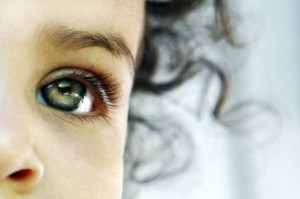4-year-olds on drugs? You betcha. The American Academy of Pediatrics issued new treatment guidelines for “Attention Deficit Hyperactivity Disorder” that say ADHD can be diagnosed in kids as early as age four, and that Ritalin and similar drugs are an appropriate treatment even for children this young. Apparently the “Academy” has no problem with the fact that the US FDA warns drugs like Ritalin can cause hallucinations, mania, heart attack, stroke and sudden death. Nor do they consider it a problem that a diagnoses of “ADHD” is based solely on a checklist of behaviors such as “loses pencils or toys,” “often does not seem to listen,” “is easily distracted by extraneous stimuli,” “fidgets” or “runs about or climbs excessively in situations when it is not appropriate.” And for this, children as young as four should be placed on drugs that the U.S. Drug Enforcement Administration categorizes in the same class of highly addictive drugs as cocaine, morphine and opium?
Right.
It should come as no surprise that the chairman of the new ADHD guidelines, Mark Wolraich, MD, is a periodic consultant to Shire Pharmaceuticals, Eli Lilly, Shinogi, and Next Wave Pharmaceuticals, or that the American Academy of Pediatrics (AAP) has received millions in pharmaceutical funding—In 2011,they received $30,000 from Pfizer; $100,000 from Eli Lilly; and $79,650 from Merck. In 2010, they received $297,750 from Pfizer; $100,000 from Merck; and $3,000 from Shire. Between 2008 and 2009, AAP received another $69,000 from Pfizer.
This isn’t the first time the AAP has come under fire for promoting a pharmaceutical agenda – in 2008, they were exposed for their financial ties to the pharmaceutical industry, when the academy issued guidelines recommending statins (cholesterol lowering drugs) for kids, after it was disclosed they had received substantial contributions from pharmaceutical companies with ties to statins, including $433,000 from Merck, $835,250 from Abbott Laboratories’ Ross Product Division and $216,000 from the Bristol-Myers Squibb company Mead Johnson Nutritionals.
Here are the only guidelines (also known as facts) that the AAP should be issuing:
1) There is no medical or scientific test that can validate ADHD as a medical condition or disease. Not one. Diagnoses is 100% subjective and means nothing in medical terms.
2) 12 International drug regulatory agencies have issued warnings on ADHD drugs such as Ritalin causing depression, insomnia, mania, hallucinations, psychosis, heart attack, stroke and sudden death. The US DEA places Ritalin in the same category of highly addictive drugs as morphine, cocaine and opium.
3) No child should ever be subjected to mind-altering, life threatening drugs based solely on a checklist of behaviors. Period.



SHARE YOUR STORY/COMMENT